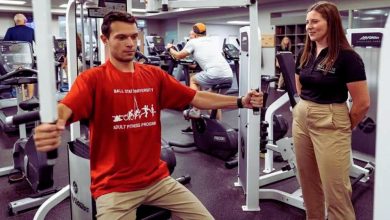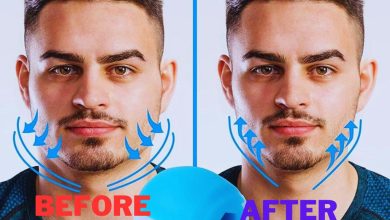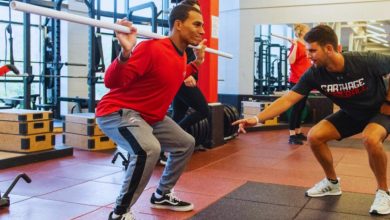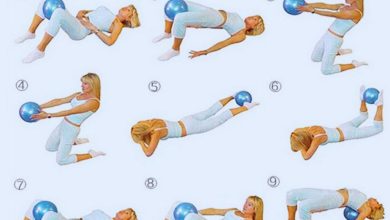The Benefits of Studying Exercise Science
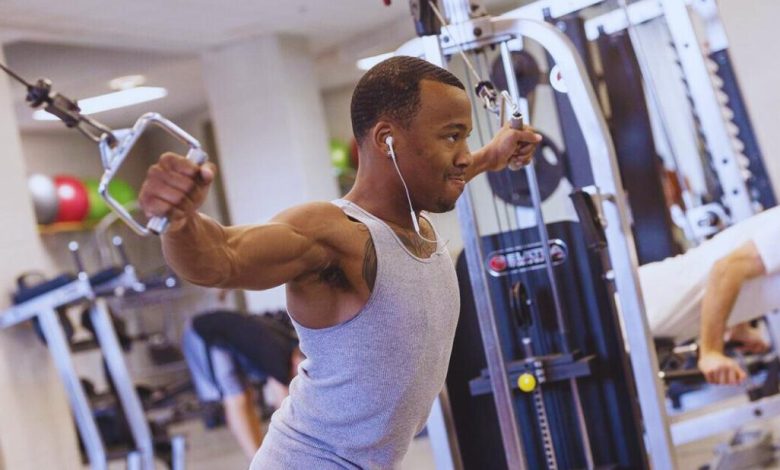
Introduction: Advantages of Studying Exercise Science
A fascinating discipline, exercise science studies how our bodies move and function during activity. Like being a body detective! Let’s explore further why everyone could get great enjoyment and benefit from the knowledge of exercise science.
Maintaining our health requires the movement of our bodies. Exercise science guides us in the best approaches to do this. It guides us toward faster, stronger, healthier living. Knowing more about exercise helps us enable others and ourselves to feel fantastic. It goes beyond just speed or hard lifting. It is about realizing how our body parts cooperate.
Learning exercise science gives numerous interesting employment opportunities. You might go into coaching, fitness training, or even assist professional athletes! Imagine guiding a squad to play better or running a first marathon for someone. Exercise science allows you to accomplish that. You might even find yourself employed in a hospital assisting in the recovery of patients from illness or injury.
One great advantage of exercise science is health knowledge.
It goes beyond just muscular strength. It’s about keeping our hearts content, our bones strong, and our brains clear. Exercise science reveals how increasing our movement can improve both inside and outside of ourselves. It helps us to realize that our health affects our emotions as much as our appearance.
Exercise science can enable injured persons to recover, did you know?
As said! Those who study this profession sometimes work in locations that assist disabled individuals in moving once more. They correct what isn’t working, just as body mechanics would. For many people who desire to resume their regular lives, rehabilitation—this component of exercise science—is a major concern.
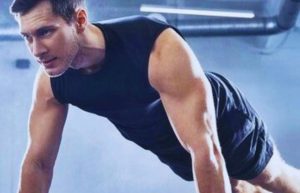
Exercise science’s mixing with different disciplines is another great feature.
It determines someone’s running speed or lifting weight capacity using mathematics. It clarifies our tiredness and the growth of our muscles using science. It also makes use of psychology to enable individuals to remain driven to exercise. Exercise science is never boring and rather fascinating because of this blend of disciplines.
Exercise science has uses outside of sports stars.
It is for all! What we study in this sector will help everyone between, young children, and elderly persons. It clarifies how we should be active and healthy all our life. It can mean older folks staying independent for longer. For children, it can imply growing up robust and well.
One can have a great time learning exercise science.
You learn by doing as well. You might do treadmill testing or track someone’s jumping height instead than only reading books. You’re kept moving via practical learning. You might track someone’s running speed or heart rate using smart devices. Like simultaneously being an athlete and a scientist!
Exercise science might be for you if you enjoy working on puzzles.
Everybody is different, hence determining the ideal approach for someone to exercise is similar to solving a certain problem every time. While you serve others, it keeps your brain active. You have to consider a person’s age, health, and goals as well as their Though difficult, it’s a fascinating task!
Exercise science also imparts dietary lessons. Our movement and feeling depend much on what we consume. Our bodies’ functioning can be much improved by knowing the proper foods to consume. You’ll find which foods boost our energy levels and which support muscle development. For your dinner plate, think of yourself as a detective!
Exercise science changes along with our surroundings.
New devices like fitness trackers provide more information about our bodies than ever before. Studying exercise science keeps you constantly learning about interesting fresh approaches to keep fit. You might even contribute to creating the next major fitness technology innovation!
The ability of exercise science to transform life is among its best features. It’s incredible to help someone who believed they couldn’t be active discover a way. It can make folks happier and more confident. Imagine helping a child with special difficulties engage in sports or assisting someone in walking once more following an accident. Exercise science’s power is such!
Exercise science goes beyond merely sprinting or carrying heavy objects. It’s also about picking the safest paths of travel. This information helps prevent injuries in those engaged in play or exercise. You will learn how to correct someone’s use of their body in a way that can cause injury.
Researching this area can lead to fascinating locations.
You might travel to major events and deal with a sports team. Alternatively, you may assist in creating entire company fitness schedules. There are a lot of open opportunities! Even now, certain workout experts assist astronauts in maintaining their health in orbit!
Jobs in exercise science are rising as more people aspire to be healthy. This suggests that learning about it could enable you to produce excellent work going forward. If you wish for a job in demand, this is a wise decision. Moreover, this is a subject where you can keep developing and learning all over your career.
Understanding exercise science will equip you to lead in health.
You might inspire others in your neighborhood or family to keep active. Many people can benefit from this quite strong knowledge. You may help your school design better PE lessons or start a walking group in your area.
Exercise science also studies how our bodies and brains cooperate. It demonstrates how active we can feel happy and think clearly. Everyone would benefit much from this, but students more so. Exercise increases your focus and memory, thereby helping you do better in class.
Exercise science is fantastic if you enjoy teamwork.
Oftentimes, you aid others and solve problems alongside others. Making friends and cooperating are aspects of the work in this sector. To provide individuals with the greatest treatment, you could team up with doctors, dietitians, and other health professionals.
Learning exercise science might inspire you creatively. You might come up with fresh approaches to work out or create equipment to enable individuals to move more freely. This is a field where fresh thoughts are highly appreciated. Perhaps you’ll design an entertaining new exercise everyone enjoys!
Exercise science keeps expanding as our knowledge of our bodies deepens. One constantly finds freshness to explore. This makes this an interesting field never monotonous. Scientists are always discovering fresh ways to exercise to benefit our bodies and brains.
Exercise science guides us toward body respect.
It reminds us of our great nature and the need for proper self-care. One can also extend this respect to other spheres of life. Knowing our bodies’ workings helps us to make better decisions.
Understanding exercise science can also allow you to know how various activities impact your body. You’ll know why swimming is healthy for your joints or why lifting weights might keep your bones strong. This information helps you decide how to move wisely.
Exercise science goes beyond personal wellness.
It also looks at how communities may be better healthwise. You can learn about creating corporate wellness initiatives or building parks that inspire activity. It’s about turning the planet into a healthier habitat for all.
Sports performance is another awesome aspect of exercise science. If you enjoy sports, this field allows you to delve deeply into what defines outstanding athletes. You will study topics including reaction time, endurance, and particular sports training strategies. Sports lovers who wish to understand the science underlying their game will find it ideal.
Additionally addressed in exercise science is mental wellness.
Exercise can today help with issues including stress, anxiety, and depression. Learning this discipline will enable you to assist individuals in feeling better in their brains as much as in their bodies.
Exercise science becomes much more crucial as our population ages. It clarifies how we should maintain the health and independence of elderly persons. You can pick up skills in designing workouts meant to keep brains sharp or help prevent falls.
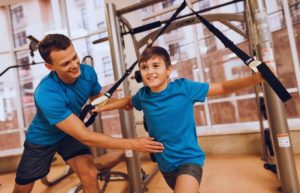
Finally:
One road to an interesting and useful job is the study of exercise science. It lets you truly change people’s lives and blends enjoyment with knowledge. Exercise science offers something for you whether your goals are to help athletes reach their best performance, repair injuries, fight diseases through prevention, or simply better understand your own body. This field keeps you always learning, thinking, and moving. Exercise science presents a special and fulfilling path to pursue a profession by combining biology, psychology, and practical labor. Why then should one not try it? Your body (and mind) will reward you; the process may also help you discover your lifetime calling!
FAQ:
With an exercise science degree, what employment possibilities exist?
You might work in corporate wellness initiatives, or be a researcher, personal trainer, physical therapist, or sports coach.
2. Does studying exercise science call for me to be fit?
Not sure! You simply have to find great fascination in the mechanics of bodies. Though it’s not necessary, being fit can assist. The field attracts folks of all degrees of fitness.
3. Does exercise science mostly include math?
Though some arithmetic is involved, don’t panic! Measuring anything like heart rate or muscle strength requires essentially basic arithmetic. You’ll put it to use practically.
4. Would exercise science enable me to drop weight?
Of course! It shows you the ideal approaches to eating for a good weight and working out. You will study metabolism and the varying calorie-burning effects of various exercises.
5. Is exercise science reserved for younger generations only?
Not exactly! Exercise science enables persons of all ages to remain active and healthy. Many programs, in fact, center on exercise for elderly persons.
6. How long does one have to work toward an exercise science degree?
Usually, four years is all a bachelor’s degree takes. Some go on to earn more time-consuming doctorates or master’s degrees.
7. Can I study exercise science with a disability?
Yes! There is exercise science for everyone. Your experiences could provide the discipline with insightful analysis.
8. In exercise science will I study food and nutrition?
Indeed, exercise science is highly influenced by diet. You’ll discover how food shapes our health and feeds our bodies.
9. Can a career in professional sports follow from exercise science?
It indeed can! Exercise scientists are hired by several pro teams to assist with performance analysis, training, and recovery.
Ten. Is physical education the same as exercise science?
Exercise science is more in-depth even if they are connected. It lessens on teaching athletic skills and more on the science underlying movement.
